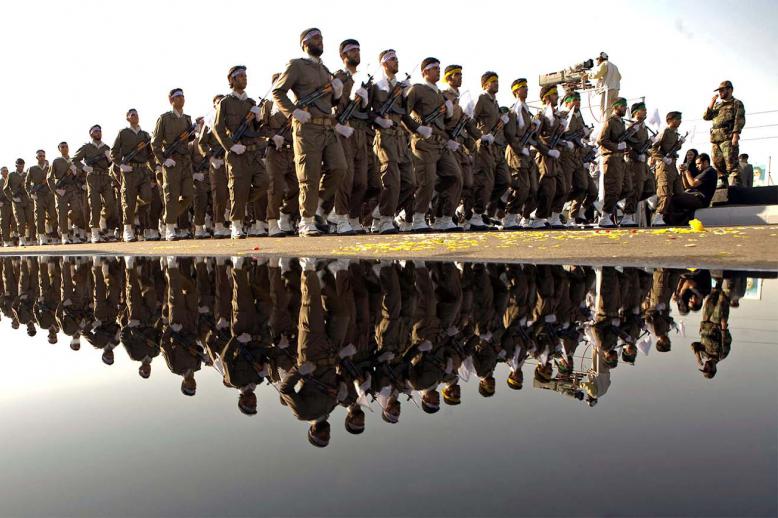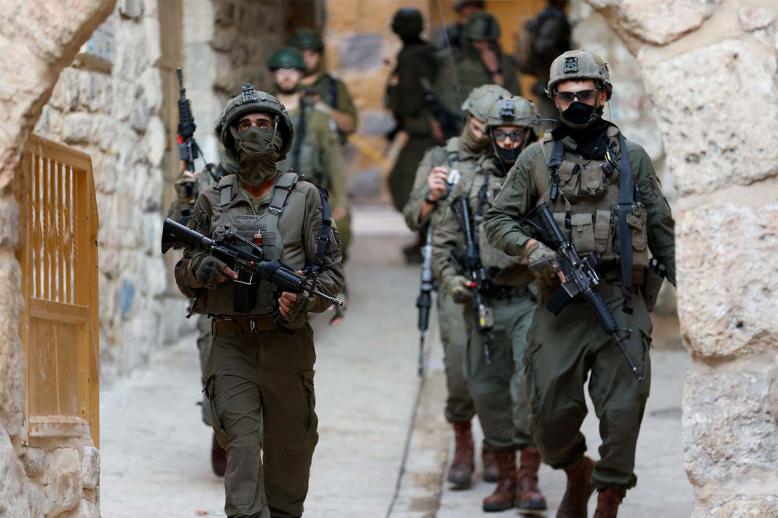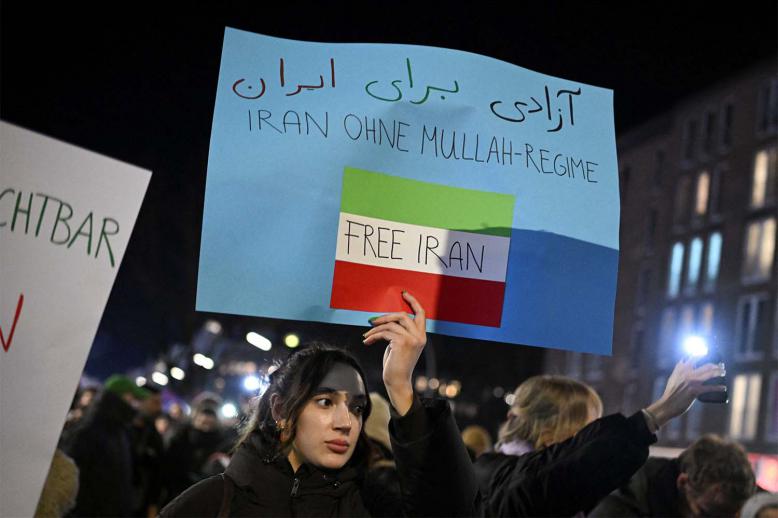Iraqi post-election horse-trading in full swing
Top Iraqi politicians, including those supposedly on opposing ideological sides, have begun meetings to discuss forming governing alliances after the country’s parliamentary election results were released.
The electoral list that secured the most parliamentary seats, 54, was the Marching Towards Reform alliance, backed by influential Shia cleric Muqtada al-Sadr. Al-Sadr’s main competitor is the Conquest Alliance, led by former Shia militiaman Hadi al-Amiri, which claimed 47 seats.
Neither list can form a government on its own, as that requires controlling at least 165 of the 329 parliamentary seats. Both groups began wooing the Victory Alliance, led by Prime Minister Haider al-Abadi, which won the third most — 42 — number of seats.
Amiri’s list is likely to be joined by its political ally, the Shia-led State of Law coalition, headed by Vice-President Nuri al-Maliki, which secured 26 seats. Both lists are staunchly backed by Iran.
Al-Sadr’s list is likely to be joined by the Shia-led National Wisdom Movement, headed by Ammar al-Hakim, which won 19 seats.
Iraqi friends or foes?
A governing Shia-led coalition would need the inclusion of Kurdish and Sunni lists. Opposing politicians who indicated during the campaign that they would not be working together appear willing to join forces to be part of the government, even if it’s led by one of their nemeses.
The National Alliance, which is dominated by Sunnis and secular figures and is led by Vice-President Ayad Allawi, said it was willing to work with former foes such as Amiri and Maliki.
The same sentiment was expressed by the Kurdistan Democratic Party (KDP), led by Masoud Barzani, which secured 25 seats.
Allawi and Barzani also stated a willingness to work with a Sadrist coalition. Their position of working with any of the Shia-led alliances is shared by Patriotic Union of Kurdistan (PUK), which won 18 seats. Despite their bitter divisions, the KDP and PUK are open to joining forces with each other to form a united bloc in parliament.
Red lines
Despite the willingness of former foes to be part of any government, some politicians set red lines regarding which parties they are willing to join forces with.
Small Kurdish parties, including the Change Movement, indicated they would not form alliances with the KDP or PUK, which they accuse of corruption and voter fraud.
There are reports that the KDP is reluctant to be part of a coalition that keeps Abadi as the prime minister, which is a very likely outcome should there be an alliance between al-Sadr and Abadi, as many observers expect.
Abadi is said to object to entering a coalition that includes his Dawa Party colleague Maliki. There is an apparent veto by Abadi’s Sunni partners — in the Victory Alliance — against working with Maliki.
Additionally, there are independent Sunni lists that are joining a coalition with Abadi, should he stay clear from Maliki. At the forefront of those Sunni-led lists is the Decision Alliance, which won 14 seats and includes the Arab Project party, led by businessman Khamis al-Khanjar.
Al-Sadr has ruled out forming an alliance with Amiri and Maliki. His objection to Maliki is based on allegations of corruption, led by al-Sadr’s supporters.
Al-Sadr’s main objection to Amiri’s Conquest Alliance is its inclusion of Qais al-Khazali, who founded Iraq’s Iran-backed Asa’ib Ahl al-Haq (AAH) militia. Khazali was a rogue member of al-Sadr’s now-dismantled Mahdi Army before he formed his own militia in 2004.
It remains unknown how strong al-Sadr’s objection to forming an alliance with Amiri would be had his list not included Khazali. Al-Sadr has had a post-election meeting with Amiri.
It would, nevertheless, be difficult for Amiri to disassociate himself from Khazali, not just because the two share a pro-Iran ideology: Out of the 47 seats secured by the Conquest Alliance, 14 were reportedly won by the AAH.
A likely governing coalition
Speaking to Sharqiya TV, former Defence Minister Khaled al-Obeidi, who is a Sunni member of Abadi’s list, said there was an understanding of forming a governing coalition that includes Marching Towards Reform, the Victory Alliance, National Wisdom Movement and the Iraqi Decision as well as other Sunni politicians.
Such a coalition would also likely include senior Kurdish figures, although negotiations over which parties will be involved are ongoing.
Al-Sadr appears confident of his success in shaping the next government. He made an unannounced visit to Kuwait, which his office said was aimed at “improving relations” between the two countries. He has met with the ambassadors of Turkey, Saudi Arabia, Kuwait, Jordan and Syria.
The horse trading comes during a period that voter-fraud allegations and incompetence were levelled at the country’s electoral commission, the most serious such charges in post-2003 Iraq.
Although the voting fraud charges are not directed at al-Sadr’s camp, if the widespread allegations are not sufficiently investigated, they are likely to cast doubt on the legitimacy of the governing process.
Mamoon Alabbasi is Deputy Managing Editor and Online Editor of The Arab Weekly. You can follow him on Twitter @MamoonAlabbasi
This article was originally published in The Arab Weekly.







